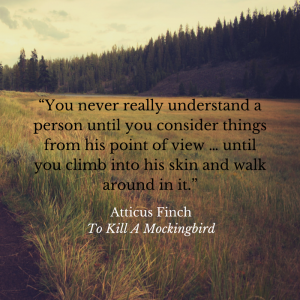Getting Inside a Character's Skin
I’ve spent the last year writing, revising and polishing my third novel. Close to Home started out as a story about a vet investigating an outbreak of hendra virus in the town where she spent her adolescence. But as the story developed, as is always the case with my writing, it became more about the relationships between the vet, Charlie Anderson, and the people in the town to which she reluctantly returned.I’m the type of writer who starts with a basic idea and lets that idea – and the characters – dictate the story, so it was no surprise when this novel began to touch on bigger issues than the outbreak of a potentially deadly equine disease. What did surprise me was that Charlie had spent her teen years in a household that was dysfunctional and that the ‘head’ of that household, her Uncle Jim, was abusive towards his wife. What surprised me even more was that Charlie’s cousin, Emma, married a man similar in too many ways to her father.The issue of domestic violence has been receiving a lot more media attention of late, due in no small part to the amazing courage of a woman called Rosie Batty. By the time Rosie received recognition in the form of the Australian Of The Year award (http://bit.ly/1nLGo1I), I was in the final stages of editing my novel. I mention this because I do not want to be seen as ‘jumping on the bandwagon’ or to trivialize this issue in any way. I write genre fiction – Rural Romance to be more specific - but at the heart of my stories are characters grappling with real issues.Almost all of my writing focuses in some way on grief (more on that in a later post) but this time I found myself writing about a woman living in an abusive relationship. Perhaps writing about it was my way of trying to understand, like my main character Charlie, why women stay, especially when children are involved. Stepping into Emma’s shoes helped me come a lot closer to answering that question. Not that the answer is a simple one. Not for my character and not for the thousands of women facing this situation every day of their lives. I won’t go into detail here about why Emma married the man she did or why she stayed with him for so long but I will say that I realised, as I was writing, that there is no quick fix, that the complications of any domestic situation, underpinned by the fear that leaving could be more dangerous than staying, mean that many women feel they have no choice. As Charlie says to her cousin at the end of the novel, ‘You did what you could at the time, Emma. That’s all any of us can do.’  Rosie Batty stated in her address to MP’s on March 2nd, (reported in The Age: http://bit.ly/1wWToRm):We don't realise we're doing it sometimes … We expect the victim to leave, become safe, have their life compromised, and then blame them for being in the relationship in the first place. …What we have to continue to remind ourselves is that violence is a choice. The ‘we’ Rosie means is all of us. Writing about the issue of domestic violence has definitely helped me come to a better understanding of it, and has made me realize why we, as a society, need to pay attention to the experiences of women like Rosie Batty.As a society we need to be more supportive of victims of domestic violence and try to understand and help rather than judge and condemn.To step into their shoes.
Rosie Batty stated in her address to MP’s on March 2nd, (reported in The Age: http://bit.ly/1wWToRm):We don't realise we're doing it sometimes … We expect the victim to leave, become safe, have their life compromised, and then blame them for being in the relationship in the first place. …What we have to continue to remind ourselves is that violence is a choice. The ‘we’ Rosie means is all of us. Writing about the issue of domestic violence has definitely helped me come to a better understanding of it, and has made me realize why we, as a society, need to pay attention to the experiences of women like Rosie Batty.As a society we need to be more supportive of victims of domestic violence and try to understand and help rather than judge and condemn.To step into their shoes.
*
Thanks for reading! To return to the FICTION WRITERS BLOG HOP on Julie Valerie’s Book Blog, click here: http://www.julievalerie.com/fiction-writers-blog-hop-aug-2015 If you missed the Q And A Special on domestic violence please take the time to view it or read the transcript here: http://ab.co/1vtejA7Find out about the Luke Batty Foundation here.Follow Rosie Batty on twitter at @RosieBatty1

